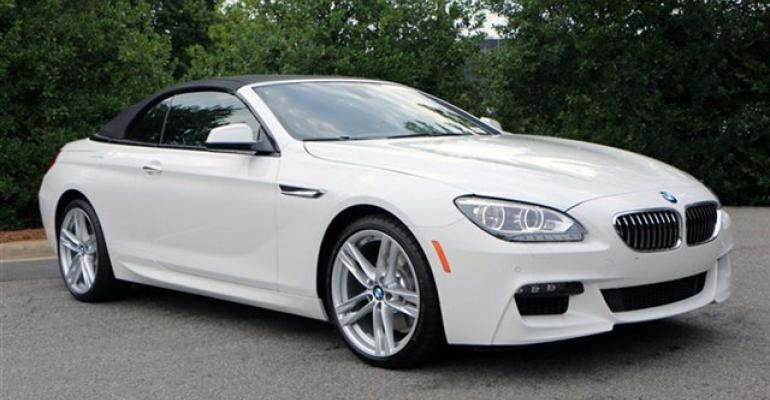German-made automobiles were the largest source of reports regarding potentially dangerous motor vehicles made to the European Union’s RAPEX consumer-alert network in 2014, analysis of its data shows.
There were 194 notifications to the system relating to automobiles and parts last year, the fourth-largest category following toys (650), clothing and textiles (530) and electrical appliances (217). The number of auto-related notifications increased from 160 in 2013.
In 2014, the countries making and exporting the motor vehicles causing problems were Germany (45), France (27), Japan (25), U.S. ( 24), U.K. (22), South Korea (9), Italy (5), Hungary (4), Portugal (4), Thailand (4), Austria (3), Spain (3), Turkey (3), India (2), as well as Canada, China, the Czech Republic, Mexico, Morocco, Poland, South Africa, Slovakia, Sweden, Taiwan and Vietnam.
Concerns regarding German-made autos involved higher-end as well as less-expensive marques. For instance, RAPEX reported recalls in Germany and Spain of certain BMW 640i Cabrio models: “The universal joint of the drive shaft may break and cause a sudden loss of drive. The rotating drive shaft may also cause damage,” the agency notes.
There also was a recall of S-Class Mercedes-Benz vehicles in Britain, Sweden, Bulgaria, Denmark, Slovenia, the Netherlands, Slovakia, Hungary, Spain, Portugal, Finland and Norway. Here RAPEX notes: “It is possible that the seatbelt-end-mount connection has not been fitted correctly to the front seats. As a result, the restraining effect may be compromised under heavy stress.”
There were only two complaints about vehicles from China in 2014, which is noteworthy, given Chinese-made products’ reputation for consumer safety is not high. Of the 2,435 notifications to RAPEX for all products last year, 64% had been made in China.
Regarding the auto complaints, one was a blister pack of auto Practic-branded car fuses, which were found to be faulty by Bulgarian consumer authorities. RAPEX reports: “The fuses take too long to blow when the current is greater than the rated current. If a fuse fails to interrupt excessive current, there is a risk of a fire starting in the electric installation of the car.”
The other was a China-made Honeywell brake disc reported by German consumer authorities. RAPEX notes: “Brake discs may show a reduced wall thickness and consequently, it is possible that a brake disc gets damaged or breaks while driving. This may lead to brake failure or a blocking of the brake at the respectively affected wheel.”
All reported problems associated with vehicles were given a serious risk assessment regarding danger to consumers by RAPEX. Of these, it says, 182 posed a risk of injuries to drivers and passengers.
Faulty brakes were a significant concern, with 27 cases noted by RAPEX involving potential malfunctions. Steering issues were the source of 26 complaints; airbag concerns were the source of 24 reports to RAPEX; lock problems sparked 19 cases; seven were due to ignition problems; and three because of potentially faulty windshield wipers.
Another 19 reports involved fire risks to drivers. For instance, a Germany-made Concorde Reisemobile camper van was the subject of a product recall for certain models made in Germany, the Netherlands and Spain. This followed concerns that “the housing of the pressure regulator may rupture, resulting in leaks of flammable gas which could lead to an explosion,” RAPEX says.
Another recall over fire-risk concerns occurred in Germany, the Netherlands, Slovakia and Sweden involving some Opel Zafira compressed-natural-gas models with an A16XNT engine. “Owing to a defective CNG tank fill-stop valve, natural gas can escape during and after filling of the tank and even after the engine has been switched off,” the consumer watchdog says.
The RAPEX system circulates information about potentially dangerous non-food products withdrawn from the market and/or recalled anywhere in Europe. It is sent to the EU’s executive branch, the European Commission, as well as EU member states and non-members Iceland, Liechtenstein and Norway.
“In this way, appropriate follow-up action (ban/stop of sales, withdrawal, recall or import rejection by customs authorities) is taken everywhere in the EU and consumers are informed,” says an EC memo.





